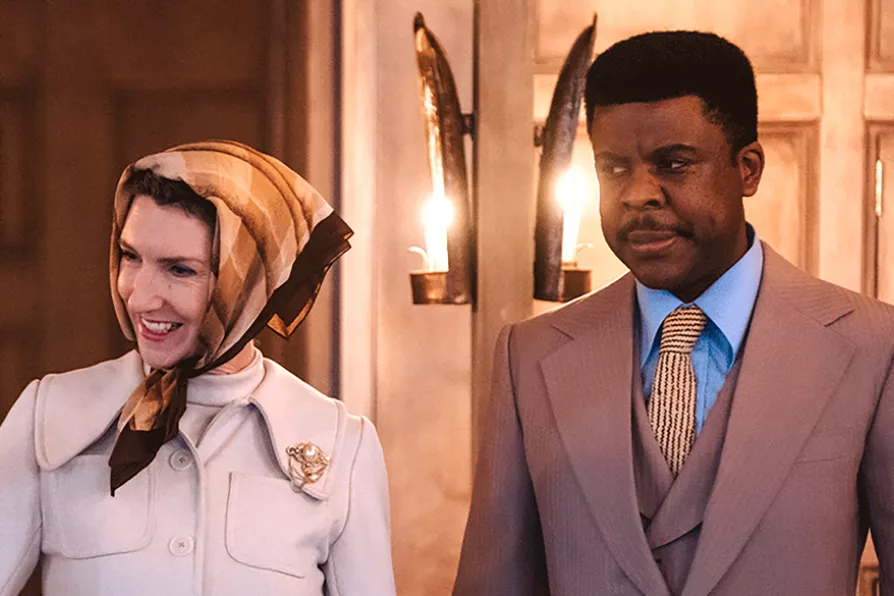RITA DI SANTO draws attention to a new film that features Ken Loach and Jeremy Corbyn, and their personal experience of media misrepresentation

 Hattie Ladbury as Duke and Ashley Zhangazha as Angelo
[Helen Murray]
Hattie Ladbury as Duke and Ashley Zhangazha as Angelo
[Helen Murray]
Measure for Measure
Sam Wanamaker Playhouse
ABUSE of power. Check. Corruption. Check. Predatory male behaviour. Check. Draconian measures. Check. A sprinkle of pantomime. Check.
Blanche McIntyre’s Measure for Measure couldn’t be timelier. But rather than locate it in the here and now she’s transposed Shakespeare’s quintessential “problem play” into the 1970s, with James Cotterill’s design finding a happy medium between Tinker Tailor Soldier Spy and Austin Powers.
There is a sneaky reference to the three-day week as the electronic lighting flickers until the candles which usually light the Sam Wanamaker Playhouse take over. It’s the first of many clever devices which characterise this perceptive production.

MAYER WAKEFIELD is gripped by a production dives rapidly from champagne-quaffing slick to fraying motormouth

MAYER WAKEFIELD laments the lack of audience interaction and social diversity in a musical drama set on London’s Underground

GORDON PARSONS squirms at a production that attempts to update Shakespeare’s comedy to a tale of Premier League football











